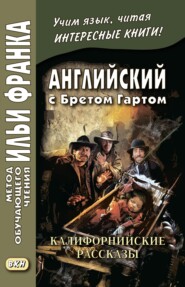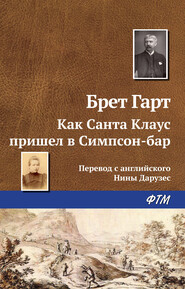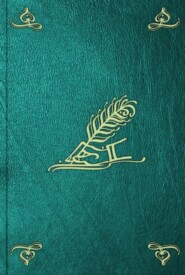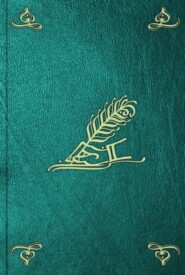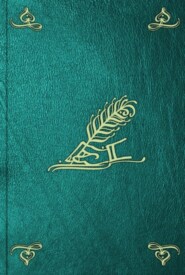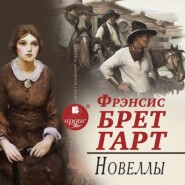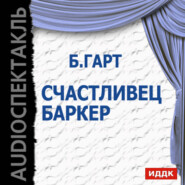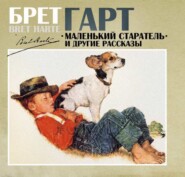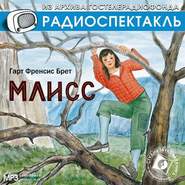По всем вопросам обращайтесь на: info@litportal.ru
(©) 2003-2024.
✖
Gabriel Conroy
Автор
Год написания книги
2017
Настройки чтения
Размер шрифта
Высота строк
Поля
It may be remarked here that it had been Jack's invalid habit to get Pete to read to him. As he had provided himself with such books as were objectionable to Pete, as they were always utterly incomprehensible when filtered through his dialect, and as he always made the reader repeat the more difficult words, he extracted from this diversion a delicious enjoyment, which Pete never suspected.
"You can go now," he said, when Pete had arranged him comfortably. "I shan't want you this afternoon. Take some money. I reckon you won't find any church of your kind here, but if anybody interferes with you, jest lambaste him! If you can't do it, jest spot him, and I will!" (Mr. Hamlin never allowed anybody but himself to object to his follower's religious tendencies.) "Have a good time, Pete! Don't tangle yourself up if you can help it. The liquor about here is jest pizen."
With this parting adjuration Mr. Hamlin turned over and tried to devote himself to his book. But after reading a few lines the letters somehow got blurred and indistinct, and he was obliged to put the book down with a much graver recollection of the doctor's warning than he had ever had before. He was obliged to confess to a singular weariness and lassitude that had become habitual, and to admit that he had more pain at times than – as he put it – "a man ought to have." The idea of his becoming blind or paralysed dawned upon him gradually, at first humorously; wondering if he couldn't deal faro as well without the use of his legs, for instance, which were of no account to a man under the table; if there could not be raised cards for the blind as well as raised letters. The idea of feeling a "pair" or a "flush" amused him greatly, and then he remembered more gravely poor Gordon, who, becoming gradually paralysed, blew his brains out. "The best thing he could do," he soliloquised, seriously. The reflection, however, had left such a depressing effect upon his mind that the exaltation of liquor for a moment seemed to be the proper thing for him; but the next moment, remembering his promise to the doctor, he changed his mind, and – with an effort – his reflections.
For relief he turned his paling face to the window. It gave upon a dusty courtyard, the soil of which was pulverised by the pawing of countless hoofs during the long, dry summer; upon a tiled roof that rose above an adobe wall, over which again rose the two square whitewashed towers of the Mission church. Between these towers he caught a glimpse of dark green foliage, and beyond this the shining sea.
It was very hot and dry. Scarcely a wave of air stirred the curtains of the window. That afternoon the trade-winds which usually harried and bullied the little Mission of San Antonio did not blow, and a writhing weeping willow near the window, that whipped itself into trifling hysterics on the slightest pretext, was surprised into a stony silence. Even the sea beyond glittered and was breathless. It reminded Jack of the mouth of the man he met in Sacramento at the hotel, and again had quarrelled with in San Francisco. And there, absolutely, was the man, the very man, gazing up at the hotel from the shadows of the courtyard. Jack was instantly and illogically furious. Had Pete been there he would at once have sent an insulting message; but, while he was looking at him, a sound rose upon the air which more pleasantly arrested his attention.
It was an organ. Not a very fine instrument, nor skilfully played; but an instrument that Jack was passionately fond of. I forgot to say that he had once occupied the position of organist in the Second Presbyterian Church of Sacramento, until a growing and more healthy public sentiment detected an incongruity between his secular and Sunday occupations, and a prominent deacon, a successful liquor-dealer, demanded his resignation. Although he afterwards changed his attentions to a piano, he never entirely lost his old affections. To become the possessor of a large organ, to introduce it gradually, educating the public taste, as a special feature of a first-class gambling saloon, had always been one of Jack's wildest ambitions. So he raised himself upon his elbow and listened. He could see also that the adjacent building was really a recent addition to the old Mission church, and that what appeared to be a recess in the wall was only a deeply embrasured window. Presently a choir of fresh young voices joined the organ. Mr. Hamlin listened more attentively; it was one of Mozart's masses with which he was familiar.
For a few moments he forgot his pain and lassitude, and lying there hummed in unison. And then, like a true enthusiast, unmindful of his surroundings, he lifted his voice – a very touching tenor, well known among his friends – and joined in, drowning, I fear, the feebler pipe of the little acolytes within. Indeed, it was a fine sight to see this sentimental scamp, lying sick nigh unto dissolution through a dissipated life and infamous profession, down upon his back in the dingy cuarto of a cheap Spanish inn, voicing the litanies of the Virgin. Howbeit, once started in he sang it through, and only paused when the antiphonal voices and organ ceased. Then he lifted his head, and, leaning on his elbow, looked across the courtyard. He had hoped for the appearance of some of the little singers, and had all ready a handful of coin to throw to them, and a few of those ingenious epithets and persuasive arguments by which he had always been successful with the young. But he was disappointed.
"I reckon school ain't out yet," he said to himself, and was about to lie down again, when a face suddenly appeared at the grating of the narrow window.
Mr. Hamlin as suddenly became breathless, and the colour rose to his pale face. He was very susceptible to female beauty, and the face that appeared at the grating was that of a very beautiful Indian girl. He thought, and was ready to swear, that he had never seen anything half so lovely. Framed in the recess of the embrasure as a shrine, it might have been a shadowed devotional image, but that the face was not so angelically beautiful as it was femininely fascinating, and that the large deeply fringed eyes had an expression of bright impatience and human curiosity. From his secure vantage behind the curtain Mr. Hamlin knew that he could not be seen, and so lay and absorbed this lovely bronze apparition which his voice seemed to have evoked from the cold bronze adobe wall. And then, as suddenly, she was gone, and the staring sunlight and glittering sea beyond seemed to Mr. Hamlin to have gone too.
When Pete returned at sunset, he was amazed and alarmed to find his master dressed and sitting by the window. There was a certain brightness in his eye and an unwonted colour in his cheek that alarmed him still more.
"You ain't bin and gone done nuffin' agin de doctor's orders, Mahs Jack?" he began.
"You'll find the whisky flask all right, unless you've been dippin' into it, you infernal old hypocrite," responded Jack, cheerfully, accepting the implied suspicion of his servant. "I've dressed myself because I'm goin' to church to-night, to find out where you get your liquor. I'm happy because I'm virtuous. Trot out that Volney's 'Ruins,' and wade in. You're gettin' out o' practice, Pete. Stop. Because you're religious, do you expect me to starve? Go and order supper first! Stop. Where in blank are you going? Here, you've been gone three hours on an errand for me, and if you ain't runnin' off without a word about it."
"Gone on an errand foh you, sah?" gasped the astonished Pete.
"Yes! Didn't I tell you to go round and see what was the kind of religious dispensation here?" continued Jack, with an unmoved face. "Didn't I charge you particularly to observe if the Catholic Church was such as a professing Christian and the former organist of the Second Presbyterian Church of Sacramento could attend? And now I suppose I've got to find out myself. I'd bet ten to one you ain't been there at all!"
In sheer embarrassment Pete began to brush his master's clothes with ostentatious and apologetic diligence, and said —
"I'se no Papist, Mahs Jack, but if I'd thought" —
"Do you suppose I'm going to sit here without my supper while you abuse the Catholic Church – the only church that a gentlemen" – but the frightened Pete was gone.
The Angelus bell had just rung, and it lacked a full half hour yet before vespers, when Mr. Hamlin lounged into the old Mission church. Only a few figures knelt here and there – mere vague, black shadows in the gloom. Aided, perhaps, more by intuition than the light of the dim candles on the high altar, he knew that the figure he looked for was not among them; and seeking the shadow of a column he calmly waited its approach. It seemed a long time. A heavy-looking woman, redolent of garlic, came in and knelt nearly opposite. A yellow vaquero, whom Mr. Hamlin recalled at once as one he had met on the road hither, – a man whose Spanish profanity, incited by unruly cattle, had excited Jack's amused admiration, – dropped on his knees, and with equally characteristic volubility began a supplication to the Virgin. Then two or three men, whom Jack recognised as the monte-players of the "Fonda," began, as it seemed to Jack, to bewail their losses in lachrymose accents. And then Mr. Hamlin, highly excited, with a pulse that would have awakened the greatest concern of his doctor, became nervously and magnetically aware that some one else was apparently waiting and anxious as himself, and had turned his head at the entrance of each one of the congregation. It was a figure Jack had at first overlooked. Safe in the shadow of the column, he could watch it without being seen himself. Even in the gloom he could see the teeth and eyes of the man he had observed that afternoon – his old antagonist at Sacramento.
Had it been anywhere else Jack would have indulged his general and abstract detestation of Victor by instantly picking a quarrel with him. As it was, he determined upon following him when he left the church – of venting on him any possible chagrin or disappointment he might then have, as an excitement to mitigate the unsupportable dreariness of the Mission. The passions are not so exclusive as moralists imagine, for Mr. Hamlin was beginning to have his breast filled with wrath against Victor, in proportion as his doubts of the appearance of the beautiful stranger grew stronger in his mind, when two figures momentarily darkened the church porch, and a rustle of silk stole upon his ear. A faint odour of spice penetrated through the incense. Jack looked up, and his heart stopped beating.
It was she. As she reached the stall nearly opposite, she put aside her black veil, and disclosed the same calm, nymph-like face he had seen at the window. It was doubly beautiful now. Even the strange complexion had for Jack a bewildering charm. She looked around, hesitated for a moment, and then knelt between the two monte-players. With an almost instinctive movement Jack started forward, as if to warn her of the contaminating contact. And then he stopped, his own face crimsoned with shame. For the first time he had doubted the morality of his profession.
The organ pealed out; the incense swam; the monotonous voice of the priest rose upon the close, sluggish air, and Mr. Jack Hamlin dreamed a dream. He had dispossessed the cold, mechanical organist, and, seating himself at the instrument, had summoned all the powers of reed and voice to sing the pæans – ah me! I fear not of any abstract Being, but of incarnate flesh and blood. He heard her pure, young voice lifted beside his; even in that cold, passionless commingling there was joy unspeakable, and he knew himself exalted. Yet he was conscious even in his dream, from his own hurried breathing, and something that seemed to swell in his throat, that he could not have sung a note. And then he came back to his senses, and a close examination of the figure before him. He looked at the graceful, shining head, the rich lace veil, the quiet elegance of attire, even to the small satin slipper that stole from beneath her silken robe – all united with a refinement and an air of jealous seclusion, that somehow removed him to an immeasurable distance.
The anthem ceased, the last notes of the organ died away, and the lady rose. Half an hour before, Jack would have gladly stepped forward to have challenged even a passing glance from the beautiful eyes of the stranger; now a timidity and distrust new to the man took possession of him. He even drew back closer in the shadow as she stepped toward the pillar, which supported on its face a font of holy water. She had already slipped off her glove, and now she leaned forward – so near he could almost feel her warm breath – and dipped her long slim fingers into the water. As she crossed herself with the liquid symbol, Jack gave a slight start. One or two drops of holy water thrown from her little fingers had fallen on his face.
CHAPTER V.
VICTOR MAKES A DISCOVERY
Happily for Mr. Hamlin, the young girl noticed neither the effect of her unconscious baptismal act, nor its object, but moved away slowly to the door. As she did so, Jack stepped from the shadow of the column, and followed her with eyes of respectful awe and yearning. She had barely reached the porch, when she suddenly and swiftly turned and walked hurriedly back, almost brushing against Mr. Hamlin. Her beautiful eyes were startled and embarrassed, her scarlet lips parted and paling rapidly, her whole figure and manner agitated and discomposed. Without noticing him she turned toward the column, and under the pretext of using the holy water, took hold of the font, and leaned against it, as if for support, with her face averted from the light. Jack could see her hands tighten nervously on the stone, and fancied that her whole figure trembled as she stood there.
He hesitated for a moment, and then moved to her side; not audaciously and confident, as was his wont with women, but with a boyish colour in his face, and a timid, half-embarrassed manner.
"Can I do anything for you, Miss?" he said, falteringly. "You don't seem to be well. I mean you look tired. Shan't I bring you a chair? It's the heat of this hole – I mean it's so warm here. Shan't I go for a glass of water, a carriage?"
Here she suddenly lifted her eyes to his, and his voice and presence of mind utterly abandoned him.
"It's nothing," she said, with a dignified calm, as sudden and as alarming to Jack as her previous agitation – "nothing," she added, fixing her clear eyes on his, with a look so frank, so open, and withal, as it seemed to Jack, so cold and indifferent, that his own usually bold glance fell beneath it, "nothing but the heat and closeness; I am better now."
"Shall I" – began Jack, awkwardly.
"I want nothing, thank you."
Seeming to think that her conduct required some explanation, she added, hastily —
"There was a crowd at the door as I was going out, and in the press I felt giddy. I thought some one – some man – pushed me rudely. I daresay I was mistaken."
She glanced at the porch against which a man was still leaning.
The suggestion of her look and speech – if it were a suggestion – was caught instantly by Jack. Without waiting for her to finish the sentence, he strode to the door. To his wrathful surprise the lounger was Victor. Mr. Hamlin did not stop for explanatory speech. With a single expressive word, and a single dexterous movement of his arm and foot, he tumbled the astonished Victor down the steps at one side, and then turned toward his late companion. But she had been equally prompt. With a celerity quite inconsistent with her previous faintness, she seized the moment that Victor disappeared to dart by him and gain her carriage, which stood in waiting at the porch. But as it swiftly drove away, Mr. Hamlin caught one grateful glance from those wonderful eyes, one smile from those perfect lips, and was happy. What matters that he had an explanation – possibly a quarrel on his hands? Ah me! I fear this added zest to the rascal's satisfaction.
A hand was laid on his shoulder. He turned and saw the face of the furious Victor, with every tooth at a white heat, and panting with passion. Mr. Hamlin smiled pleasantly.
"Why, I want to know!" he ejaculated, with an affectation of rustic simplicity, "if it ain't you, Johnny. Why, darn my skin! And this is your house? You and St. Anthony in partnership, eh? Well, that gets me! And here I tumbled you off your own stoop, didn't I? I might have known it was you by the way you stood there. Mightn't I, Johnny?"
"My name is not Johnny —Carámba!" gasped Victor, almost beside himself with impatient fury.
"Oh, it's that, is it? Any relation to the Carámbas of Dutch Flat? It ain't a pretty name. I like Johnny better. And I wouldn't make a row here now. Not to-day, Johnny; it's Sunday. I'd go home. I'd go quietly home, and I'd beat some woman or child to keep myself in training. But I'd go home first. I wouldn't draw that knife, neither, for it might cut your fingers, and frighten the folks around town. I'd go home quietly, like a good nice little man. And in the morning I'd come round to the hotel on the next square, and I'd ask for Mr. Hamlin, Mr. Jack Hamlin, Room No. 29; and I'd go right up to his room, and I'd have such a time with him – such a high old time; I'd just make that hotel swim with blood."
Two or three of the monte players had gathered around Victor, and seemed inclined to take the part of their countryman. Victor was not slow to improve this moment of adhesion and support.
"Is it dogs that we are, my compatriots?" he said to them bitterly; "and he – this one – a man infamous!"
Mr. Hamlin, who had a quick ear for abusive and interjaculatory Spanish, overheard him. There was a swift chorus of "Carámba!" from the allies, albeit wholesomely restrained by something in Mr. Hamlin's eye which was visible, and probably a suspicion of something in Mr. Hamlin's pocket which was not visible. But the remaining portion of Mr. Hamlin was ironically gracious.
"Friends of yours, I suppose?" he inquired, affably. "'Carámbas' all of them, too! Perhaps they'll call with you? Maybe they haven't time and are in a hurry now? If my room isn't large enough, and they can't wait, there's a handy lot o' ground beyond on the next square —Plaza del Toros, eh? What did you say? I'm a little deaf in this ear."
Under the pretence of hearing more distinctly, Jack Hamlin approached the nearest man, who, I grieve to say, instantly and somewhat undignifiedly retreated. Mr. Hamlin laughed. But already a crowd of loungers had gathered, and he felt it was time to end this badinage, grateful as it was to his sense of humour. So he lifted his hat gravely to Victor and his friends, replaced it perhaps aggressively tilted a trifle over his straight nose, and lounged slowly back to his hotel, leaving his late adversaries in secure but unsatisfactory and dishonourable possession of the field. Once in his own quarters, he roused the sleeping Pete, and insisted upon opening a religious discussion, in which, to Pete's great horror, he warmly espoused the Catholic Church, averring, with several strong expletives, that it was the only religion fit for a white man, and ending somewhat irreverently by inquiring into the condition of the pistols.
Meanwhile Victor had also taken leave of his friends.
"He has fled – this most infamous!" he said; "he dared not remain and face us! Thou didst observe his fear, Tiburcio? It was thy great heart that did it!"
"Rather he recognised thee, my Victor, and his heart was that of the coyote."
"It was the Mexican nation, ever responsive to the appeal of manhood and liberty, that made his liver as blanched as that of the chicken," returned the gentleman who had retreated from Jack. "Let us then celebrate this triumph with a little glass."
And Victor, who was anxious to get away from his friends, and saw in the prospective aguardiente a chance for escape, generously led the way to the first wine-shop.
It chanced to be the principal one of the town. It had the generic quality – that is, was dirty, dingy, ill-smelling, and yellow with cigarette smoke. Its walls were adorned by various prints – one or two French in origin, excellent in art, and defective in moral sentiment, and several of Spanish origin, infamous in art, and admirable in religious feeling. It had a portrait of Santa Anna, and another of the latest successful revolutionary general. It had an allegorical picture representing the Genius of Liberty descending with all the celestial machinery upon the Mexican Confederacy. Moved apparently by the same taste for poetry and personification, the proprietor had added to his artistic collection a highly coloured American handbill representing the Angel of Healing presenting a stricken family with a bottle of somebody's Panacea. At the farther extremity of the low room a dozen players sat at a green-baize table absorbed in monte. Beyond them, leaning against the wall, a harp-player twanged the strings of his instrument, in a lugubrious air, with that singular stickiness of touch and reluctancy of finger peculiar to itinerant performers on that instrument. The card-players were profoundly indifferent to both music and performer.







